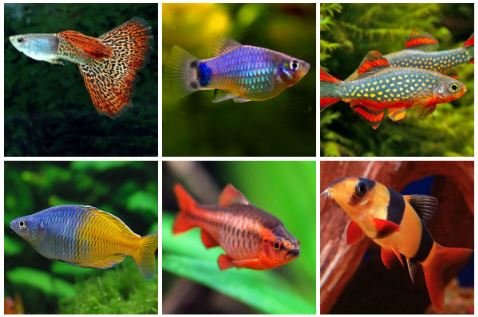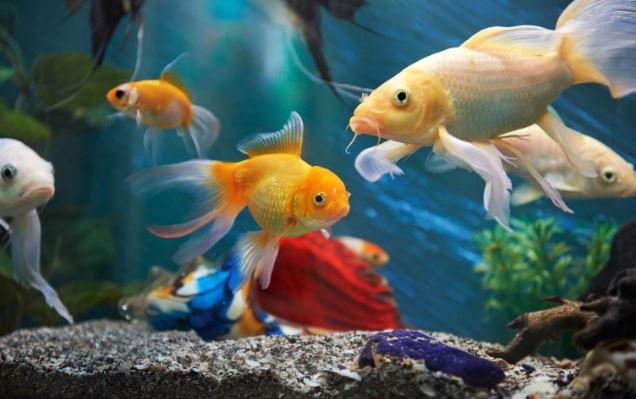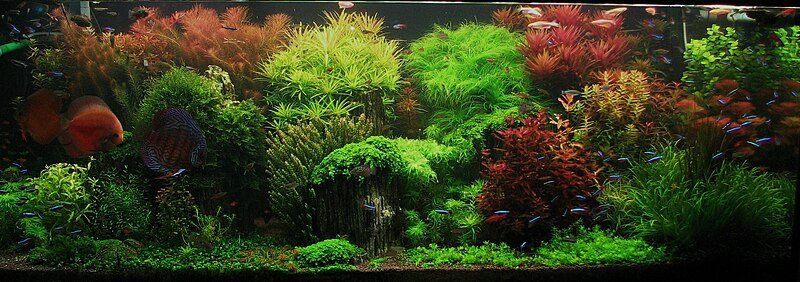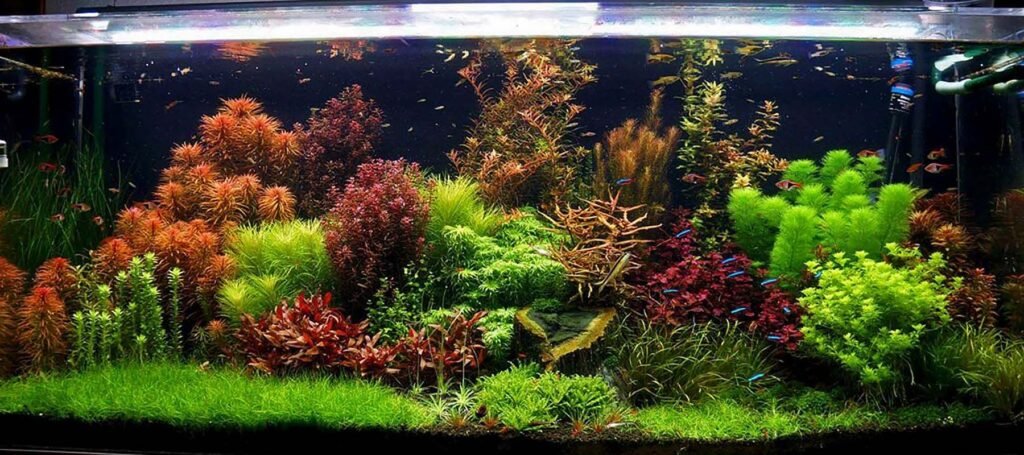Are you thinking of setting up a freshwater aquarium and adding some beautiful fish to your collection? Freshwater aquariums are a fantastic way to bring life and color into your home or office space. However, before diving into the world of freshwater aquarium fish, it’s essential to understand the basics, from selecting the right fish to creating a suitable environment for them to thrive. In this comprehensive guide, we will explore everything you need to know about aquarium fish in freshwater setups.
Freshwater Aquarium Fish
Freshwater aquariums are self-contained ecosystems that mimic the natural habitat of freshwater fish. They provide a controlled environment for fish to thrive, offering a mesmerizing display of colors, shapes, and behaviors. These aquariums are relatively easier to set up and maintain compared to their saltwater counterparts, making them a popular choice for beginners and experienced aquarists alike.
Selecting the Ideal Fish Species
Choosing the correct fish species is crucial for a successful freshwater aquarium. Consider factors such as size, temperament, and compatibility with other species when selecting fish. Popular choices for freshwater aquariums include Betta fish, Guppies, Tetras, Angelfish, and Corydoras. Research each species to understand their specific care requirements and ensure they will thrive in your aquarium setup.

Essential Equipment for a Freshwater Aquarium
To create a suitable environment for your fish, you’ll need several essential pieces of equipment. These include a fish tank of appropriate size, a filtration system, a heater (if necessary), a lighting system, a thermometer, a water testing kit, and a gravel vacuum for cleaning purposes. Each component plays a vital role in maintaining a healthy and thriving aquarium ecosystem.
Setting Up the Aquarium
Before adding fish to your aquarium, it’s important to set it up correctly. Clean the tank thoroughly, add a suitable substrate, and arrange any decorations or plants. Fill the tank with dechlorinated water and let it cycle for a few days to establish a beneficial bacteria colony. Cycling the tank ensures a stable and healthy environment for your fish.

Water Quality and Filtration Systems
Maintaining excellent water quality is paramount to the health of your fish. Regularly test the water parameters such as pH, ammonia, nitrite, and nitrate levels. Invest in a reliable filtration system that provides mechanical, chemical, and biological filtration. Filter cartridges or media should be replaced or cleaned periodically to ensure optimal performance.
Maintaining the Ideal Water Parameters
Different fish species have specific water parameter requirements. It is essential to research the ideal temperature, pH, hardness, and other parameters for the fish you plan to keep. Use a heater and a reliable thermostat to maintain a stable temperature, and make necessary adjustments to keep the water conditions within the optimal range for your fish.
Feeding and Nutrition for Freshwater Fish
Proper nutrition is vital for the health and growth of your fish. Offer a varied diet that includes high-quality fish flakes, pellets, and frozen or live foods suitable for the specific species. Avoid overfeeding, as it can lead to water quality issues and health problems. Monitor your fish’s feeding habits and adjust the quantity accordingly.
Common Freshwater Fish Diseases and Prevention
Freshwater fish are susceptible to various diseases, including fungal infections, bacterial diseases, and parasitic infestations. Learn about common diseases, their symptoms, and appropriate treatment options. Maintain a clean and stress-free environment, quarantine new fish before adding them to the main tank, and perform regular water changes to prevent disease outbreaks.
Breeding and Reproduction in Freshwater Fish
Breeding freshwater fish can be a rewarding experience. Some species exhibit unique breeding behaviors and stunning displays. Research the specific requirements for breeding your chosen fish species, such as water parameters, compatible tankmates, and proper conditioning. Provide appropriate spawning sites or breeding tanks, and monitor the process closely to ensure the survival of the fry.
Adding Plants and Decorations to Your Aquarium
Live plants not only enhance the aesthetics of your aquarium but also provide shelter and oxygen for your fish. Choose suitable plant species based on lighting requirements and compatibility with your fish. Additionally, select decorations and substrates that complement the overall theme of your aquarium while providing hiding places and territories for your fish.

Compatible Tankmates for Freshwater Fish
When selecting tankmates for your fish, consider their compatibility in terms of temperament, size, and water parameter requirements. Some species are more territorial or aggressive and may not be suitable for a community tank. Research the preferred tankmates for your chosen fish species to create a harmonious and peaceful environment.
Tips for Aquascaping and Visual Appeal
Aquascaping is the art of arranging plants, rocks, and decorations in an aesthetically pleasing manner. Create visually appealing landscapes by following the principles of design, such as the rule of thirds, focal points, and balance. Experiment with different layouts and textures to create a captivating underwater world.

Troubleshooting Common Aquarium Issues
Aquariums may face challenges such as algae blooms, water cloudiness, or equipment malfunctions. Understand the common issues and their causes to effectively troubleshoot them. Regular maintenance, water changes, proper feeding, and regular equipment checks can prevent or resolve most problems in your aquarium.
Creating a Regular Maintenance Routine
Maintaining a consistent maintenance routine is vital for the long-term success of your freshwater aquarium. Schedule regular tasks such as water testing, water changes, filter cleaning, and algae removal. Keep a record of your observations and test results to identify any patterns or changes in your aquarium’s health.
FAQs (Frequently Asked Questions)
1: How often should I feed my freshwater fish?
Feed your fish small portions 2-3 times a day, adjusting the quantity based on their feeding response and avoiding overfeeding.
2: Can I keep different species of freshwater fish together?
Yes, but it’s essential to choose compatible species that have similar water parameter requirements and compatible temperaments.
3: How can I prevent algae growth in my aquarium?
Maintain proper lighting duration, perform regular water changes, and avoid overfeeding. Additionally, consider adding algae-eating fish or invertebrates to control algae growth.
4: How do I know if my fish is sick?
Look out for signs such as changes in appetite, unusual swimming behavior, discoloration, or visible signs of parasites. Consult a veterinarian experienced in fish health if needed.
5: Can I use tap water in my freshwater aquarium?
Tap water can be used after treating it with a water conditioner to remove harmful chlorine, chloramines, and heavy metals.






